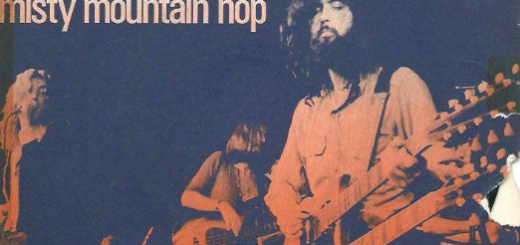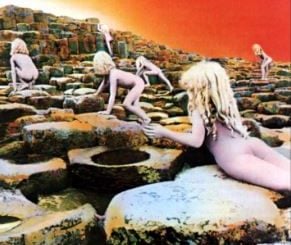Sick Again by Led Zeppelin Lyrics Meaning – Dissecting the Odes of Rock’s Gilded Age
Lyrics
I saw your pretty blue eyes
One day soon you’re gonna reach sixteen
Painted lady in the city of lies
Oh, do you know my name?
Do I look the same?
You know I’m the one you want, babe
I must be the one you need, yeah
Clutching pages from your teenage dream
In the lobby of the Hotel Paradise
Through the circus of the LA queens
How fast your learn the downhill side
Oh, how you like my face?
Still don’t know your name
You know I’m the one you want, babe
Oh yes, I must be the one you need, yeah
Oh, you got me feeling
Just a bit, just a bit
Lips like cherries and the brow of a queen
Come on, flash it in my eyes
Said you dug me since you were thirteen
Then you giggle as you heave and sigh
Oh, do you know my name?
Do I look the same?
Baby I gotta tell you, I’m the one you want
And everybody know I’m the one you need, yeah
Oh, give it to me, come on now
Hours, hours, and the moments in between
Oh, baby, I couldn’t count the times
The fun of comin’, oh the pain in leavin’
Baby, dry those silver eyes
Oh, do you know my name?
Do I look the same?
You know I’m the one you want
Oh yes, I’m the one you need
Oh, that’s right, oh, yes that’s right
Oh, that’s right, that’s right, that’s right
Oh yeah, that’s right
Within the soul-stirring discography of Led Zeppelin, ‘Sick Again’ occupies a unique room in the venerable halls of rock history. Unveiled as part of their 1975 album ‘Physical Graffiti,’ the track is cloaked in the classic Zeppelin sound—blistering guitar riffs, Plant’s haunting wails, and the sturdy backbeat of Bonham’s ever-thumping drum. It’s a swan song to the decadent ’70s rock scene, a melancholic yet scathing look at the siren call of fame and its unappealing bedfellow, exploitation.
What may seem as a straightforward rock tune laced with the band’s signature sexual innuendo unravels to a complex tapestry of emotion and commentary on youth being devoured by the star-making machine. Listen closely as we peel apart the layers of this enigmatic tune to reveal what lies beneath the surface of ‘Sick Again’ and why it continues to resonate with audiences nearly half a century later.
The Allure of a ‘Painted Lady’: Unmasking Lust and Innocence Lost
The opening lines of ‘Sick Again’ are an immediate plunge into the world of young girls ushered into the unrelenting glare of the spotlight, too soon. The ‘pretty blue eyes’ and the ‘painted lady in the city of lies’ sketch a vivid image of innocence exploited and fantasy tainted by the facade of Los Angeles—the proverbial city of dreams turned city of lies.
Zeppelin unveils the tragic irony of these young muses; the very youth that makes them magnetic is what the industry will use up and throw away. Robert Plant’s lyrics echo the industry’s predatory nature without shying away from the complicity of the bands, including themselves, in this dark dance.
A Circus of Broken Dreams: LA Queens and the Teenage Dream
The song’s narrative powerful thrust is delivered with ‘the circus of the LA queens.’ The music industry, couched within Hollywood’s embrace, is depicted as a circus—chaotic, deceptive, and mesmerizing. The dream chasers find themselves in the ‘lobby of the Hotel Paradise,’ a metaphorical crossroads between their innocent dreams and the grim reality they face.
This line is a capture of the moment—the teenage dream still clutched in the hands of youth—before it becomes a memory, trampled by the tumultuous music scene. The descent is fast, the lessons harsh, and Zeppelin crafts a haunting refrain of how those who come looking for gold often leave tarnished.
The Vicious Cycle of Desire and Rejection
In exploring the song’s deeper meanings, we confront a narrative that pivots on a cyclical lure of desire and abandonment. Plant’s rhetorical inquiries, ‘Oh, do you know my name? Do I look the same?’ aren’t just vanity—they question the transient nature of relationships in this ecosystem, where intimacy is fleeting and recognition is as evanescent as the characters’ dreams.
This poignant refrain resounds throughout the track, emphasizing the anonymity and replaceability of people in this hallucinatory environment. The sentiment encapsulates the central pain of ‘Sick Again’: everyone wants to be desired, to be known, but in the end, they’re often left feeling sick—sick with the emptiness of hollow interactions and the sickness of the spirit in the face of relentless exploitation.
Euphoria to Agony: The Emotional Rollercoaster Under the Spotlight
‘Hours, hours, and the moments in between’ encapsulates the idea that in the music industry, time is fragmented between moments of thrill and despair—the ‘fun of comin’,’ the pain of leaving.’ This line maps the emotional landscape of those trapped in this cycle, elating in the heights of success and crashing into the lows of departure.
The duality of these experiences is voiced by Plant with a mix of cynicism and empathy. It’s a nod to the temporal joy that fame and adoration bring, as well as a recognition of the deep scars that the inevitable departure can leave. The lines are a stark reminder that behind the facade of rock ‘n’ roll glamour, there’s a human cost that’s often overlooked.
Memorable Lines: The Permanent Imprint of a Transient World
‘Lips like cherries and the brow of a queen,’ the song pulsates with imagery that is at once vivid and fleeting. These lines allure to the superficial beauty that catches the eye but can never satiate the soul. It’s the sardonic remark of a narrator who has seen through the veneer, recognizing the ephemerality of the objects of desire they once longed for.
The tragicomic ‘Then you giggle as you heave and sigh’ is not just about the physical act, but also the metaphorical pains that come with the industry’s excesses. The artistry of this song lies in such thought-provoking lines that capture the essence of an era where dreams were as ephemeral as the notes that played them.








